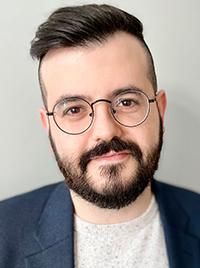
Dr. Victor Ferreira is a translational scientist specializing in viral and vaccine immunology, with a focus on improving outcomes for immunocompromised populations, including transplant recipients. Dr. Ferreira completed his PhD in Medical Sciences (Infection and Immunity) at McMaster University and post-doctoral training at UHN. He leads a multidisciplinary research program investigating virus-host interactions, vaccine responses, and the elimination of chronic and latent viral infections. His work integrates systems immunology, single-cell and multi-omics approaches, and gene-targeted therapies such as organ-directed delivery platforms and engineered immune cells. His research aims to understand how immune defenses break down in vulnerable patients and to find new ways to guide personalized approaches for preventing infections and restoring immune function.




 https://orcid.org/0000-0002-1472-9711
https://orcid.org/0000-0002-1472-9711